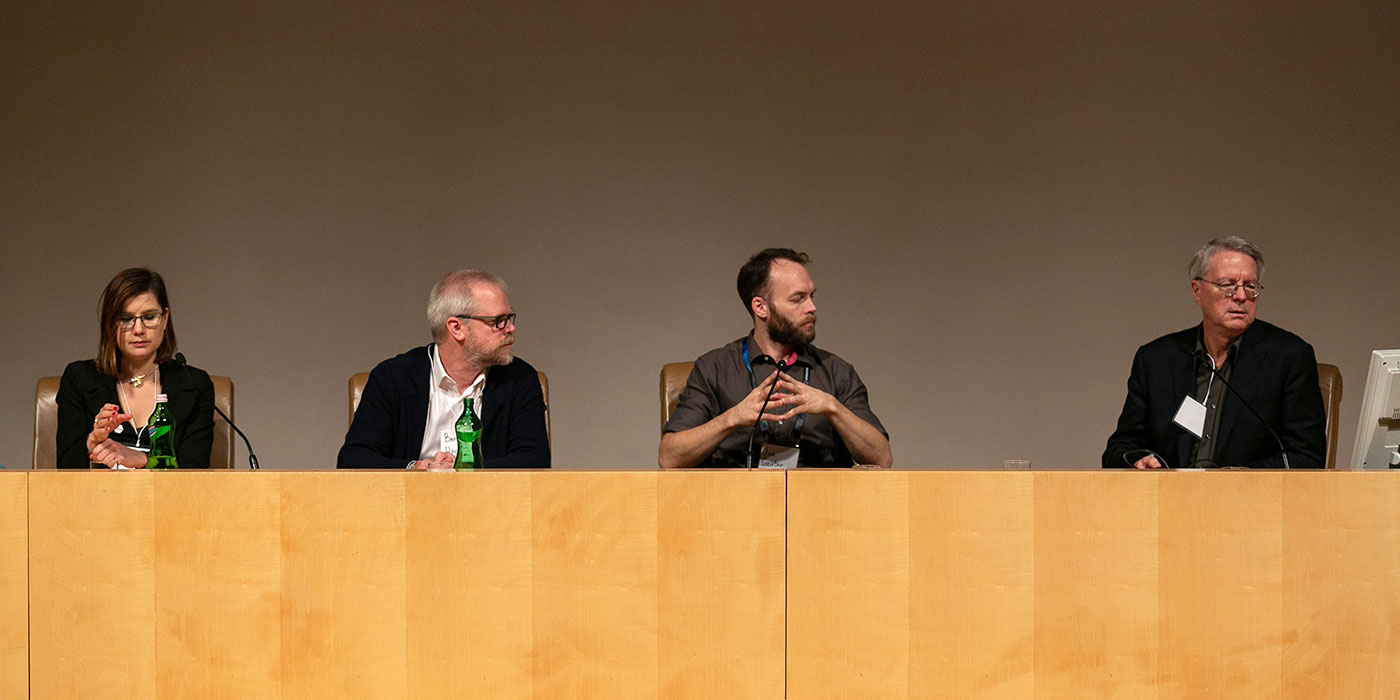On October 29th 2018, Intertrust and our partner LINE jointly held our 4th security summit entitled “Preparing for the Data-Driven Future” in Rome, Italy. This is the second in a series of blog posts on the event; the first one can be found here.
With blockchain related topics gaining a lot of attention in the technology industry, one of the panels at the event, “Breaking Through the Blockchain,” brought togethers experts in the field to shine a bit of reality on the subject. Speakers were Jon Geater, currently heading up a stealth mode startup, Bernhard Hecker, Vice President Business Development at Cryptowerk, and Marta Piekarska, Director of Ecosystem at Hyperledger. The panel was moderated by Intertrust’s own Executive Vice President and Chief Technology Officer, Dave Maher. Maher also heads up Intertrust’s own blockchain R&D project.
Blockchain vs. Bitcoin
Dave Maher started off by describing what blockchain is and discussing some of the issues around Bitcoin, one of the cryptocurrencies based on blockchain. Maher said that blockchain is a way to put a document into a database with some immutability as well as a way of checking the document’s authenticity. It is also designed to have multiple exact copies of the document distributed amongst the databases where it is held. Maher said that the one-way hash document technology used in blockchain is specifically designed to “make it almost impossible for changes to a document to go undetected.” Marta Piekarska also pointed out that blockchain really isn’t new technology. “Blockchain has been around longer then Bitcoin; it has been known since the 1960s,” (Piekarska).
As for Bitcoin, Maher said that it was a currency specifically designed for value exchange over the Internet but made it clear he was less than impressed. Some of the issues with Bitcoin is that transaction speeds are not very fast, transaction costs were “higher than a cup of coffee” plus he asserted it isn’t that secure. Comparing it to traditional currencies, Bitcoin represents a transfer of trust from traditional institutions “to coders and node operators,” (Maher). Piekarska did say that Bitcoin did bring the advantages of “anyone being able to download a wallet and start to buy and sell blockchain” as well as being able to confirm transactions on a website.
Some Uses for Blockchain
Piekarska said that the immutability aspects of blockchain technology make it attractive to companies for a number of uses, such as sharing medical records with the ability for patients to control permissions as to who can access their records. Jon Geater, who pointed out that he had over 20 years of experience working with secure networks, felt that blockchain was very powerful in leveling the playing field and increasing efficiency in markets and supply chains. One example is that blockchain helps allow smaller organizations participating in these to look just the same to customers as larger ones. Geater has also worked in military supply chains and said that blockchain based systems could eliminate a large number of people who are tasked with constantly checking on their suppliers.
Piekarska also brought up the use case of blockchain based smart contracts, essentially software-based agreements that automatically execute when the agreement’s conditions are met. “These would be incredibly useful for insurance claims,” (Piekarska). However, she cautioned that smart contracts still aren’t all that smart and that auditors and good programmers are still needed. “Auditing smart contracts is a gold mine,” (Piekarska).
About Phil Keys
Phil Keys is a Director, Comms & Research for Intertrust Technologies. He is a veteran technology industry observer, marketer, connector, and writer based in Silicon Valley. In addition to 13 years of experience as a Silicon Valley Correspondent for Nikkei Business Publications, Phil has worked for technology companies in both the US and Japan. Phil has spoken publicly in events in Tokyo and Silicon Valley as well as moderated panels in Silicon Valley. He holds a B.A. from the University of California at Berkeley and attended International Christian University in Tokyo.
